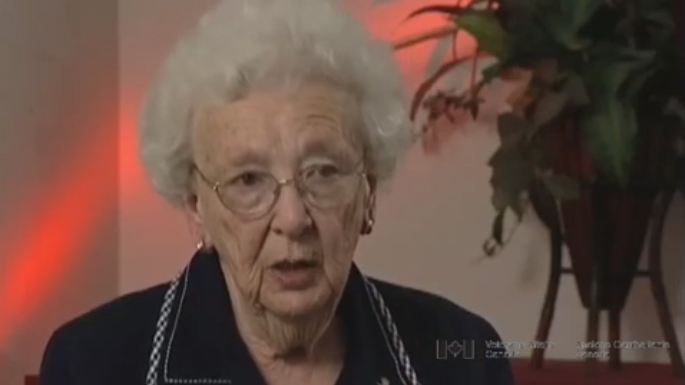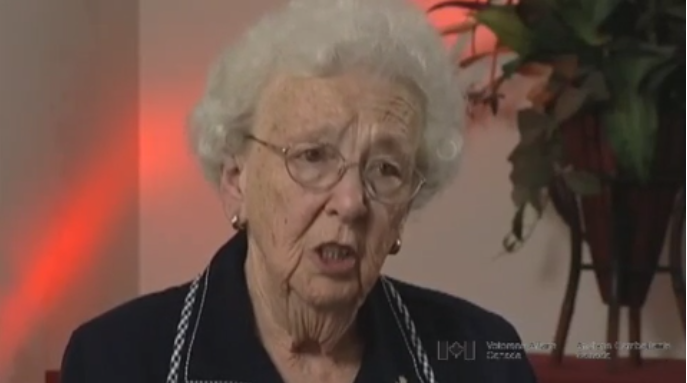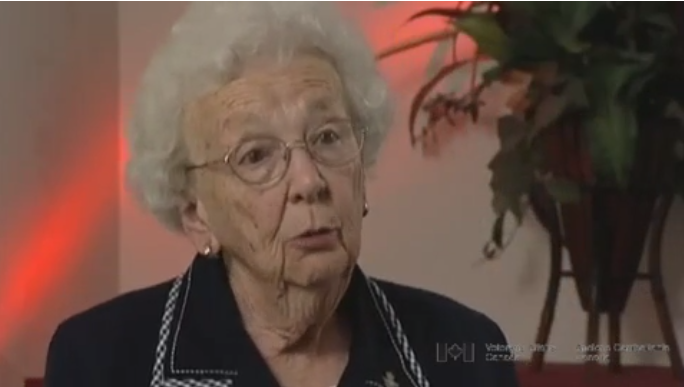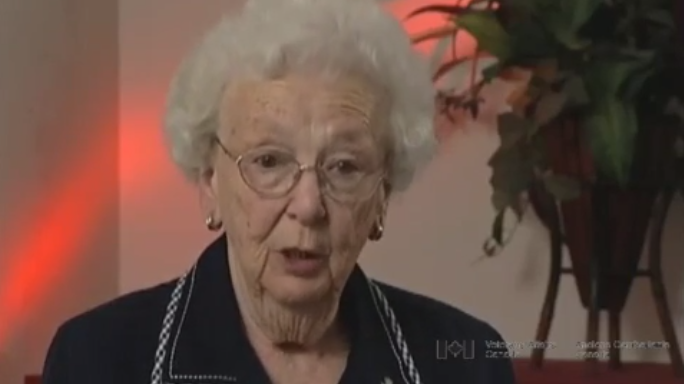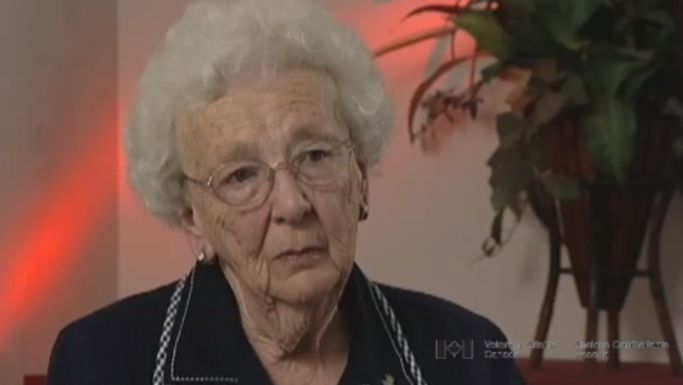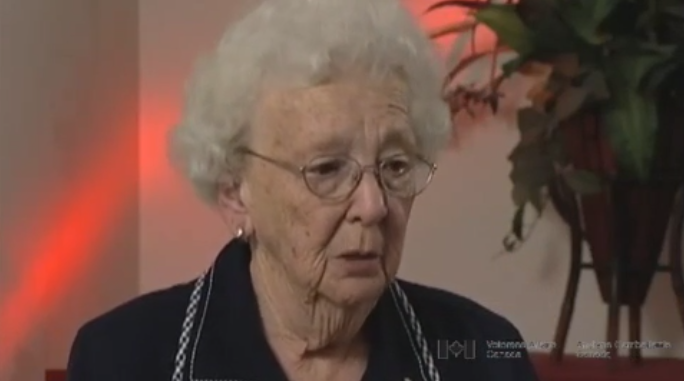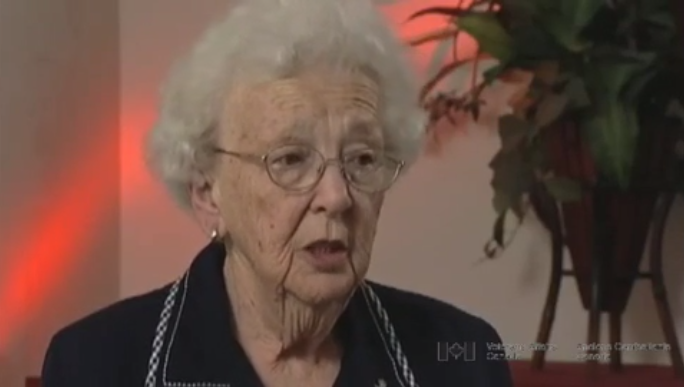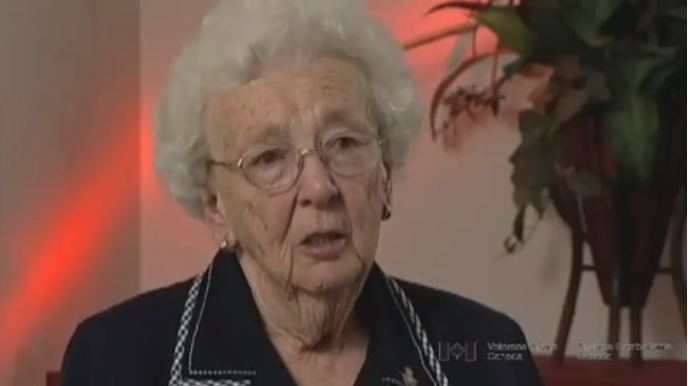Strength of People in London
Heroes Remember
Strength of People in London
Transcript
Description
Mrs. Jackson emphasizes the strength and encouragement given to the Guinea pigs by people in London, comparing it to the wonderful source of strength that Churchill, King and Queen had for their country.
Beatrice Jackson
Mrs. Beatrice Jackson was born in Ontario, Canada July 1924. As a child her family moved to England where she was raised until the War broke out. While living in England, Beatrice decided to join the Royal Canadian Air Force, Women’s Division. She took on an occupation of a Posting Clerk in the Administration Division of the Royal Canadian Air Force. The highlight of her wartime service was visiting the East Grinstead hospital in England on her days off and caring for the burned victims. Her most precious memory of war is the friendships she made and the care she provided to the burn victims who would later be known as “The Guinea Pigs” Their remarkable story is told by, Rita Donovan, in her book, “ As for the Canadians: The Remarkable Story of the RCAF's"Guinea Pigs" of World War II” Of which the following excerpt has been taken: They were the fried airmen, the mashed airmen of the war. Canadians took to the skies young, fit and whole. Some of them burned and were mangled. In another war they would have been hushed up, shut away in institutions or homes. But they were about to encounter the best piece of luck they had seen in a while – the Queen Victoria Hospital in East Grinstead, Sussex. They were about to become members of the Guinea Pig Club. New Zealander Archibald McIndoe and Canadian Ross Tilley were the surgeons who put the airmen s bodies back together, performing experimental plastic surgery. But they did more: they took the battered boys and helped rebuild their spirits, gave them back their confidence, and returned them to society. They did it with a crack medical team, barrels of beer and theatre tickets in London, with a town that adopted the damaged airmen as their own. They did it without a single suicide. This is the story of the Canadian Wing of the most unusual club in the world. ... Excerpt from the book As for the Canadians: The Remarkable Story of the RCAF s Guinea Pigs of World War II, by Rita Donovan. (Ottawa: BuschekBooks, 2000)To this day, Mrs. Jackson holds the experience of caring for these airmen her most precious memory and has maintained longstanding friendships with the many woman she served with during that time. Mrs. Jackson returned to Canada, after the war where she married and raised a family.
Meta Data
- Medium:
- Video
- Owner:
- Veterans Affairs Canada
- Duration:
- 1:17
- Person Interviewed:
- Beatrice Jackson
- War, Conflict or Mission:
- Second World War
- Branch:
- Air Force
- Units/Ship:
- Royal Canadian Air Force Women's Division
- Occupation:
- Administration
Related Videos
- Date modified:



